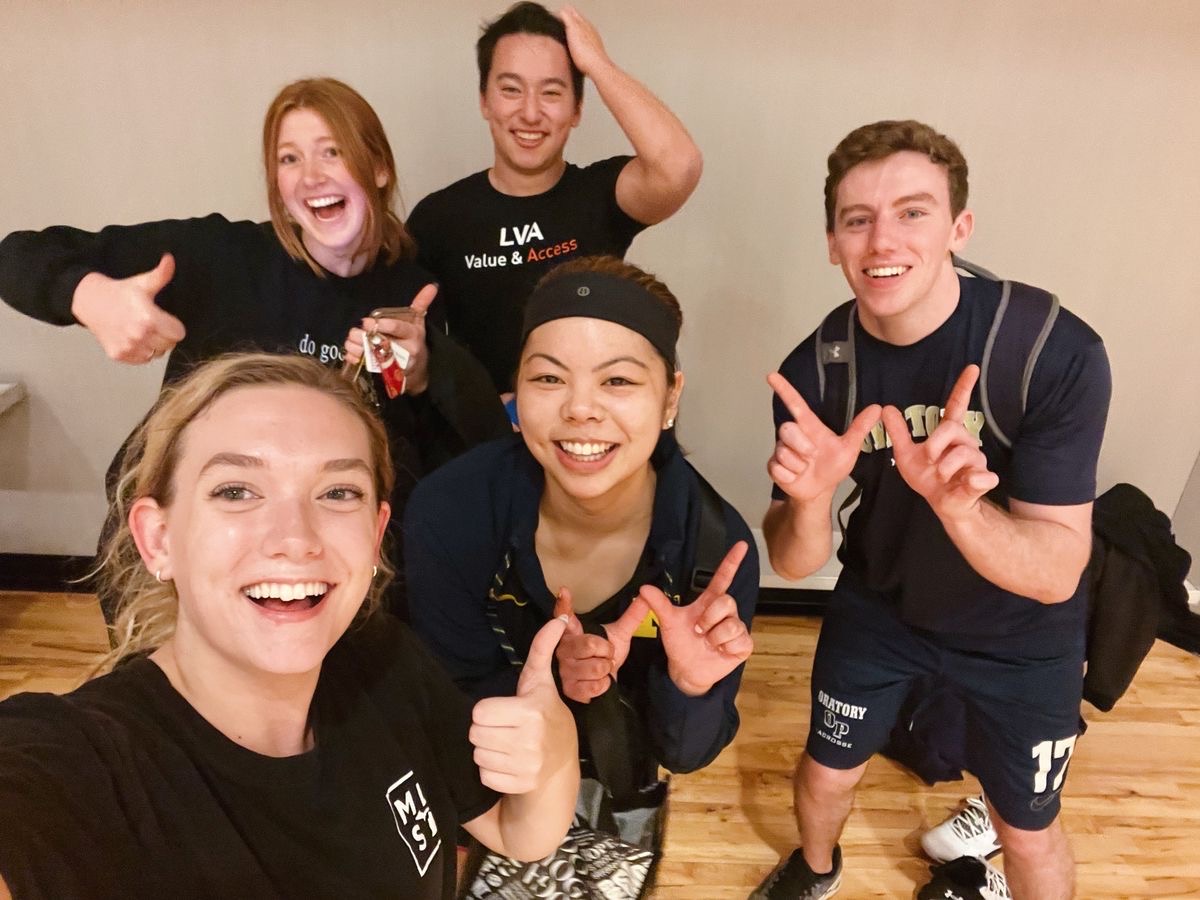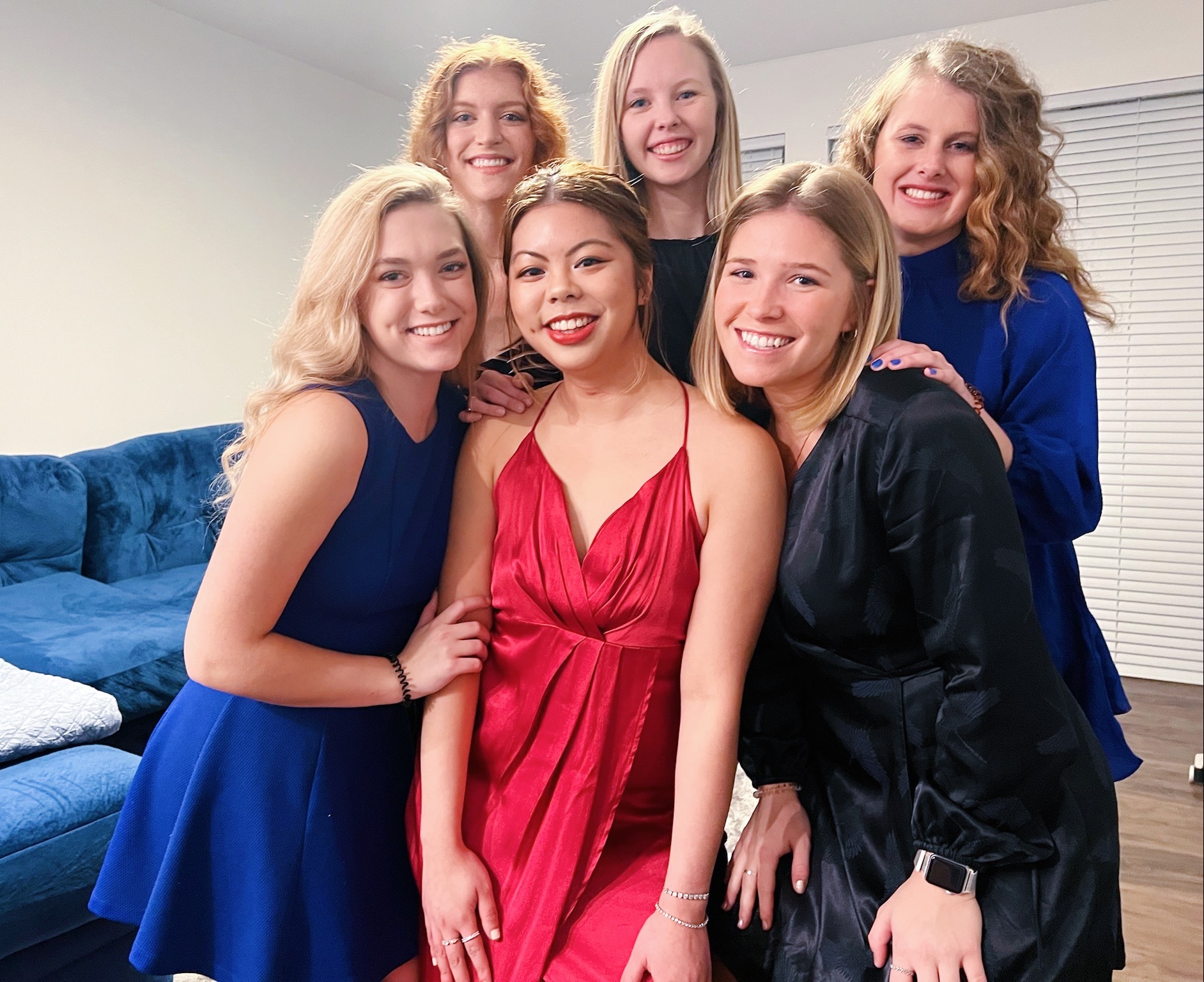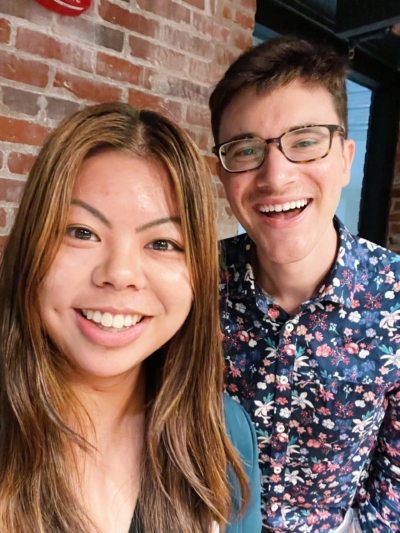
Alex and her Lilly volleyball team after their first win
Surprise, I’m back! Ross Reflections has been revived. Allow me to reintroduce myself:
my name is Alexa. I graduated from the University of Michigan’s Ross School of Business in May 2021, where I majored in Business Administration and concentrated in Marketing.
Since graduating, I have moved to a brand new city (Indianapolis), started my first full-time job (Marketing Associate at Lilly), and have been fully “adulting” (I know, this word makes me cringe too). To say I have learned a lot during this odd post-grad time would be an understatement.
After learning so much in such a short amount of time, I wanted to share five lessons that I have learned thus far since I have graduated from business school.

Alexa and her friends at a Lilly ERG event
1) Find a Community: Much like how I stressed the importance of finding community in business school, I’ve learned how important it is to do the same after graduation. This is especially important because I moved to a new city where I didn’t know anyone.
Community can manifest itself in many ways. For me, I have found community through work. I am fortunate to be working for a large company, where there are many opportunities to find smaller communities with shared interests.
The first community I joined is my volleyball recreational league. Everyone on the team works at Lilly. What’s great about this rec league is that I have been able to meet people who work in different functions and departments at Lilly. I’ve also been able to get to know my co-workers on a more personal level. My team members and I all graduated last May, so we are all on this post-grad journey together!
I look forward to our weekly volleyball games; every day can feel like a monotonous routine after work, so having mid-week plans really breaks the work week up. This relates back to my time in business school, too, where I would grab a coffee after class with the same friend or make Friday lunch plans after work staff meetings.
I also found community by joining a couple of ERGs (Employee Resource Groups) and organizations at Lilly. Think of these ERGs and organizations as the equivalent of extracurricular clubs in business school.
What I like about ERGs is that everyone joins on their own and we all share similar interests. For example, I joined a DE&I organization, the Chinese Culture Network, and a marketing-focused organization.
I have been able to meet people who I wouldn’t interact with on a regular basis. These groups consist of people from all levels at the company, which is another reason to join. Senior directors and vice presidents are often the sponsors and members of these ERGs and organizations, which provides you a chance to network within the company.
I was actually invited to join the DE&I organization by a director. I joined because it aligned with my interests in promoting diversity and fostering an inclusive community within the immunology business unit. I view this director as a great mentor who provides valuable advice. I trust his judgment and opinion immensely because of how honest and candid he is.
For one of my projects, I was struggling with how to handle working with an external vendor because I have never worked with a vendor before. A little bit of imposter syndrome kicked in because I didn’t feel like I had any authority as a brand new associate to be in charge of the vendor. This director helped me develop a communication plan and clearly outline my project expectations and objectives so that I could get the results I wanted in working with this vendor. He also reminded me that I am closer to the business than the vendor and that therefore I do have authority to spearhead the project. This was really encouraging and reinforced my confidence.

Alexa meeting up with her co-worker (Patrick) for the first time
2) It’s Okay to Ask for and to Accept Help: Post-grad can be as daunting as it is exciting. You are fully in charge of your life or, in business terms, “You are the CEO of your life”.
Similar to being a student, where you are still learning and don’t actually know everything, starting your first full-time job is the exact same way. It’s important to give yourself grace. No one expects you to know everything. This has been something that has been reiterated to me multiple times from mentors and co-workers.
In business school, we had office hours where professors would set up blocks of time for students to visit and ask questions. In the real world, office hours do not exist.
When you have questions, or need clarification about something, you should follow up and ask your questions. Be intentional and set up time with your supervisor and team so they can walk you through what you need. If speaking with your supervisor seems too intimidating, then set up time with someone who you are comfortable with. I have peer mentors who are only a year or two older than me who I go to and ask my “dumb” questions.
However, I am fortunate to have developed a close relationship with my previous supervisor. I felt comfortable enough with her where I could be vulnerable and ask her all sorts of questions. Often, we’d have working sessions where we could give each other live feedback talk through things aloud. I’ve found that working sessions are sometimes much more efficient than emailing.
In the case that people do not have time for working sessions because their schedules are crazy busy, I have learned to always ask pointed questions when asking for help. I don’t like to waste people’s time, so I always make sure to ask specific questions and show them a draft of what I’ve been working on to get direct feedback.
Here’s an example: on my new team, I needed help writing a creative brief for a particular tactic. I had never written a creative brief before, so I reached out to several people who have. I asked them for examples of specs, along with how much background information and which claims I should include.
Even though he had never written a creative brief for my particular tactic, a member on my team provided suggestions that I had never thought of before. Along with specifying claims, he recommended that I consider if the tactic should be in landscape or portrait orientation and the number of pages to include. I ultimately was able to take his suggestions and write a creative brief of my own before sending it to my supervisor for his final approval (Spoiler alert – he approved!).











Questions about this article? Email us or leave a comment below.